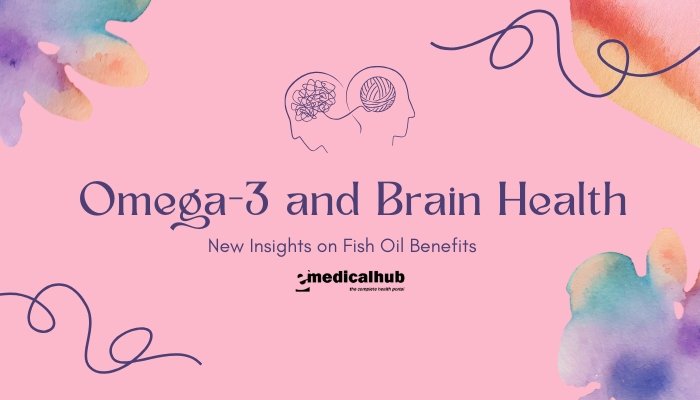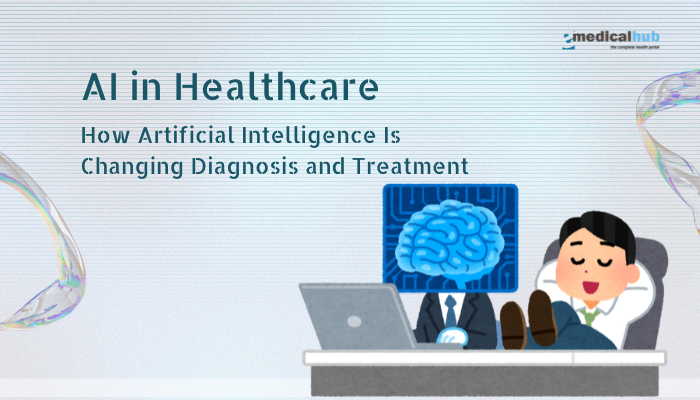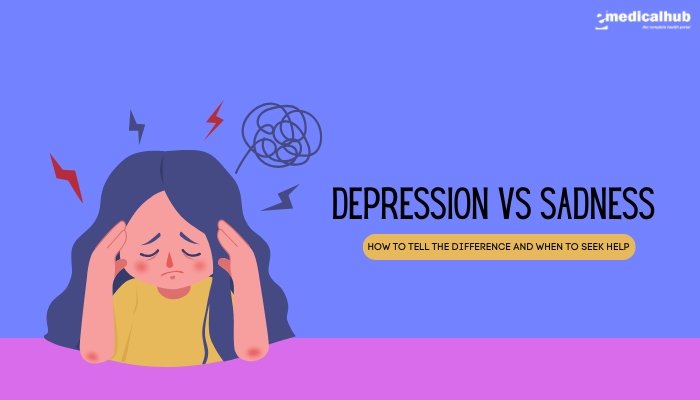Introduction
Omega-3 fatty acids have steadily risen in popularity as a key nutrient for overall health – especially brain function. Beyond typical associations with heart and joint health, research also links certain omega-3 fats to cognitive performance, emotional well-being, and even neuroprotection against age-related decline. Consequently, fish oil supplements rich in omega-3 (particularly EPA and DHA) have become best-sellers worldwide. But do these supplements genuinely improve memory, focus, and mood, or is the hype outpacing the evidence?
This article explores the science behind omega-3’s impact on the brain, focusing on fish oil – the most common supplement form. We’ll examine how these essential fats operate, discuss new studies offering insights into mental health and cognition benefits, and weigh practical guidance for choosing fish oil or obtaining omega-3 through dietary routes.
Ultimately, while omega-3 research has advanced, the decision to incorporate fish oil should balance potential advantages, personal health goals, and the best available scientific evidence.
Disclaimer: The content here is for general information and not meant to replace personalized medical guidance. If you have specific conditions or questions about omega-3 intake, consult a qualified healthcare professional or dietitian.
Understanding Omega-3 Fatty Acids
Types of Omega-3s: ALA, EPA, and DHA
- Alpha-Linolenic Acid (ALA): Found primarily in plant sources like flaxseeds, chia seeds, and walnuts. ALA is an essential fatty acid, meaning our body can’t synthesize it, so dietary intake is needed. However, the human body converts ALA into EPA and DHA only in limited amounts (often under 10%).
- Eicosapentaenoic Acid (EPA): Commonly found in marine sources, notably oily fish (salmon, sardines, mackerel, anchovies). EPA plays roles in anti-inflammatory pathways and is implicated in heart health and mental well-being.
- Docosahexaenoic Acid (DHA): Also concentrated in fish and algae, DHA is especially crucial for brain and retinal development. High concentrations of DHA are present in brain cell membranes, supporting fluidity and cell signaling processes.
The Brain’s Need for Omega-3
Comprising nearly 60% fat, the brain depends on certain fatty acids to maintain neuronal function and structural integrity. DHA, in particular, accumulates in synaptic membranes, influencing how neurotransmitters pass signals. When dietary intake is insufficient, or the ratio of omega-6 to omega-3 is skewed, brain function may be suboptimal. Therefore, adequate consumption from fish or fish oil has been hypothesized to aid mental health and prevent neurodegenerative issues.
Fish Oil and Brain Benefits: What Does the Research Say?
Cognition and Memory
- Age-Related Cognitive Decline: Several observational studies note that populations with high fish consumption (like in the Mediterranean) have lower rates of cognitive decline. However, randomized controlled trials show mixed results regarding whether fish oil supplementation robustly prevents dementia or mild cognitive impairment.
- Mild Cognitive Improvements: Some smaller trials suggest that older adults with mild memory issues experience modest improvements in certain memory tasks or processing speed when supplementing with DHA/EPA, although consistent robust proof is lacking.
- Younger Adults: In healthy young individuals, substantial cognitive enhancement from fish oil is less firmly established. Any improvement might be subtle or overshadowed by a generally balanced diet.
Mental Health and Mood
- Depression: Meta-analyses reveal that high-EPA fish oil formulations can help reduce depressive symptoms in some individuals, often as an adjunct to conventional treatments. The effect size is moderate.
- Anxiety: Preliminary evidence suggests that moderate doses of omega-3 may lower anxiety levels, though the findings are not uniform.
- Bipolar Disorder: Some psychiatrists incorporate high-dose fish oil protocols, but data remains variable. The synergy with medication can be beneficial for certain patients.
Neuroinflammation and Neurodegenerative Diseases
- Inflammatory Pathways: EPA and DHA can modulate inflammatory cytokines, potentially beneficial in diseases with strong inflammatory components (e.g., multiple sclerosis, Alzheimer’s).
- Alzheimer’s Disease: While observational data often show lower risk in fish-consuming populations, direct evidence from supplements is less conclusive. Some trials show slowed cognitive decline in early stages, but the benefits are not guaranteed for all.
Key Takeaway
Omega-3’s effect on brain health is complex and individual. Many people see mild to moderate benefits, especially if dietary intake was previously low or if they have certain conditions like depression. Yet it’s not a guaranteed memory-booster or cure-all. The best outcomes often occur when fish oil supplementation complements an overall healthy lifestyle, not as a single fix.
New Insights and Ongoing Research
Emerging Studies on High-Dose DHA
Some recent trials examine high-dose DHA in older adults with mild cognitive impairment, investigating if it can slow progression to dementia. Preliminary results are mixed, but a subset of participants with specific genetic backgrounds (e.g., APOE4) might respond differently. More robust, larger-scale clinical trials are still in progress.
Algal-Based Omega-3 for Vegetarians
For those avoiding fish, algal oil is recognized as a direct DHA/EPA source. Studies confirm its bioavailability is comparable to fish oil. Research into specialized algae strains or fortification methods could expand vegetarian or vegan-friendly options.
Personalized Nutrition
The interplay between an individual’s genetics, gut microbiome, and omega-3 absorption is a hot research area. One day, personalized guidelines might help determine your ideal omega-3 dose or ratio, maximizing cognitive benefits.
Choosing Fish Oil Supplements
Factors to Consider
- EPA:DHA Ratio: If your main goal is mental well-being, many experts recommend higher DHA content. If you aim for anti-inflammatory support, a balanced or higher EPA ratio can help.
- Purity: Ensuring the product is free of contaminants like mercury, PCBs, or rancidity is crucial. Look for third-party testing or molecular distillation claims.
- Form (Triglyceride vs. Ethyl Ester): Triglyceride form can be more easily absorbed for some users.
- Dosage: A typical range is around 250–500 mg combined EPA+DHA per day for general health. Higher doses (1-3 g) might be used under medical supervision for specific issues.
Potential Side Effects and Interactions
- Gastrointestinal Upset: Some people experience mild burping, fishy aftertaste, or stomach discomfort. Enteric-coated or taking with meals helps.
- Bleeding Risk: Very high doses (over 3 g/day) could increase bleeding tendency, especially if on blood thinners.
- Allergies: Rare fish or shellfish protein traces might be present in certain supplements.
Food vs. Supplements
Foods high in omega-3—like salmon, sardines, mackerel—offer broader nutrients (proteins, vitamins) plus synergy with other beneficial fats. For those who dislike fish or can’t meet dietary needs, supplements are a convenient fallback. Many experts advise at least two servings of fatty fish weekly if you can incorporate it easily.
Lifestyle Considerations Beyond Omega-3
Balanced Diet is Key
While fish oil draws attention, remember that overall dietary quality matters significantly for brain health. A diet abundant in colorful fruits, vegetables, whole grains, legumes, and other healthy fats (like olive oil, nuts) can provide antioxidants, fiber, and polyphenols that further protect neural pathways.
Physical Activity and Brain Function
Studies link regular exercise—particularly aerobic exercise—to improved cerebral blood flow, better mood regulation, and potential growth factor release in the brain. Combining exercise with sufficient omega-3 might enhance cognitive synergy.
Stress Management and Sleep
Excess stress or chronic sleep deprivation can sabotage mental clarity and emotional balance. While fish oil can offset some inflammation, it won’t rectify lifestyle-induced cortisol spikes or poor restorative sleep.
Practical Tips for Incorporating Omega-3
- Aim for 2-3 Fatty Fish Servings Weekly: Salmon, sardines, anchovies, herring, or trout.
- Check Labels: If using fish oil supplements, note the exact EPA+DHA content (not just “1000 mg fish oil”).
- Consume with Meals: Enhances absorption and reduces fishy aftertaste.
- Store Properly: Fish oil can become rancid; keep in a cool, dark place or refrigerate.
- Try Algal Oil: If you’re plant-based or allergic to fish, algal DHA/EPA is a suitable alternative.
Realistic Expectations and Closing Thoughts
Omega-3’s potential for supporting brain health is promising but nuanced. Among the best-supported benefits are cardiovascular protective effects, mild mood or cognitive improvements, and reducing systemic inflammation. For many, a diet that includes moderate amounts of fish or a modest daily supplement of 250–500 mg EPA+DHA suffices to maintain adequate levels. People with specific conditions (like depression or high triglycerides) might discuss higher therapeutic doses with their doctor.
Remember: Omega-3 is just one factor among many (like balanced nutrition, exercise, sleep, and stress management) that fosters optimal mental and physical functioning. If you decide to supplement, choose a reputable product, pay attention to dosage, and realize results—such as subtle mood lifts or reduced inflammation—may take weeks or months. In synergy with healthy lifestyle habits, fish oil can help keep your brain in peak condition. Yet, the best approach remains anchored in dietary variety, emphasizing whole foods that collectively feed your body and mind.
Frequently Asked Questions (FAQ)
Can vegans get enough DHA/EPA without fish oil?
Yes. They can rely on algal oil supplements for direct DHA/EPA. Additionally, consuming ALA-rich seeds (flax, chia, hemp) helps produce some EPA/DHA, though conversion is limited.
Do I need a high-EPA formula for depression?
Some studies show depression benefits with higher EPA or a 2:1 ratio of EPA:DHA. However, the best ratio can be individual, so consulting a psychiatrist or dietitian is suggested.
How long before I notice any effect on memory or mood after taking fish oil?
You may see subtle improvements within 4-12 weeks. Larger changes, if they occur, could take months. Patience and consistency are crucial.
Does cooking fish reduce the omega-3 content?
Cooking can cause some nutrient loss, but typically not enough to negate benefits. Baking, steaming, or poaching might preserve more omega-3 than high-temperature frying.
Is krill oil better than regular fish oil?
Krill oil also contains EPA/DHA in phospholipid form, possibly more bioavailable. The differences are modest, though, and the higher cost may not be justified for everyone.
Conclusion
Omega-3 fatty acids, especially from fish oil or marine sources, have garnered attention for their potential to benefit brain health. While they’re no panacea, scientific evidence suggests that sufficient EPA and DHA intake may help support mood regulation, reduce mild inflammation, and possibly slow certain aspects of cognitive decline—particularly when combined with an overall healthy lifestyle. Thus, including fatty fish in your diet or selecting a reputable omega-3 supplement can be a sensible step for many adults, particularly if your typical meals lack these essential fats.
It’s vital to maintain realistic expectations—noticeable improvements might be subtle, and results vary individually. Also, focusing on a balanced diet with plenty of whole foods, along with regular exercise and good sleep, remains the broader foundation for robust mental and physical vitality. Omega-3s can play a supportive role within that framework. If you’re curious about fish oil supplementation for brain health or other benefits, talk to a healthcare provider or registered dietitian about proper dosing, brand quality, and whether it aligns with your personal health goals.
References
- Swanson D, Block R, Mousa SA. Omega-3 fatty acids EPA and DHA: Health benefits throughout life. Adv Nutr. 2012;3(1):1-7.
- Tan ZS, Harris WS, Beiser AS, et al. Red blood cell omega-3 fatty acid levels and markers of accelerated brain aging. Neurology. 2012;78(9):658-64.
- Appleton KM, Rogers PJ, Ness AR. Is there a role for n-3 long-chain polyunsaturated fatty acids in the regulation of mood and behavior? A review of the evidence. Nutr Res Rev. 2008;21(1):13-41.
- Karr JE, Alexander JE, Winningham RG. Omega-3 polyunsaturated fatty acids and cognition throughout the lifespan: a review. Nutr Neurosci. 2011;14(2):71-85.
- Boespflug EL, McNamara RK, Eliassen JC, et al. Fish Oil Supplementation In The Diet. J Nutr Biochem. 2016;32:201-211.
- Joffre C, Nadjar A, Leblanc R, et al. n-3 Polyunsaturated Fatty Acids and the Resolution of Inflammation. Front Pharmacol. 2020;11:591951.
- Fond G, Macgregor A, et al. Antidepressant effects of omega-3. Transl Psychiatry. 2019;9(1):190.
- Gao F, Fu Y, He C, et al. Anti-oxidative and anti-inflammatory effects of EPA and DHA: potential synergy in improvement of mental health. Br J Nutr. 2021;125(7):784-794.
- Montgomery P, Richardson AJ. Omega-3 fatty acids for depression in adults. Cochrane Database Syst Rev. 2008;(2):CD004692.
- Lavie CJ, Milani RV, Mehra MR, et al. Omega-3 polyunsaturated fatty acids and cardiovascular diseases. J Am Coll Cardiol. 2009;54(7):585-94.
- Innes JK, Calder PC. The differential effects of eicosapentaenoic acid and docosahexaenoic acid on cardio-metabolic risk factors and outcomes. Int J Mol Sci. 2020;21(14):5142.
- FDA. Advice about Eating Fish for Women Who Are or Might Become Pregnant, Breastfeeding Mothers, and Young Children. 2021.







